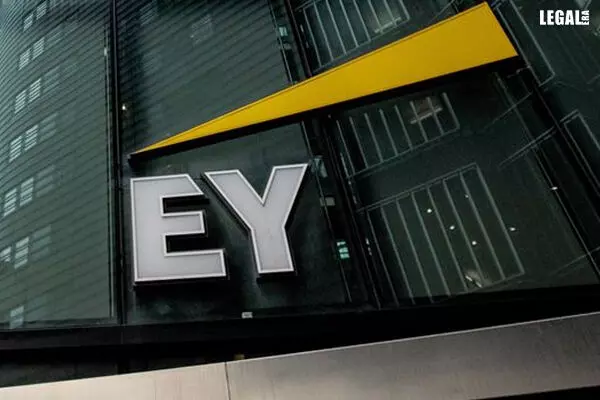- Home
- News
- Articles+
- Aerospace
- Agriculture
- Alternate Dispute Resolution
- Banking and Finance
- Bankruptcy
- Book Review
- Bribery & Corruption
- Commercial Litigation
- Competition Law
- Conference Reports
- Consumer Products
- Contract
- Corporate Governance
- Corporate Law
- Covid-19
- Cryptocurrency
- Cybersecurity
- Data Protection
- Defence
- Digital Economy
- E-commerce
- Employment Law
- Energy and Natural Resources
- Entertainment and Sports Law
- Environmental Law
- FDI
- Food and Beverage
- Health Care
- IBC Diaries
- Insurance Law
- Intellectual Property
- International Law
- Know the Law
- Labour Laws
- Litigation
- Litigation Funding
- Manufacturing
- Mergers & Acquisitions
- NFTs
- Privacy
- Private Equity
- Project Finance
- Real Estate
- Risk and Compliance
- Technology Media and Telecom
- Tributes
- Zoom In
- Take On Board
- In Focus
- Law & Policy and Regulation
- IP & Tech Era
- Viewpoint
- Arbitration & Mediation
- Tax
- Student Corner
- AI
- ESG
- Gaming
- Inclusion & Diversity
- Law Firms
- In-House
- Rankings
- E-Magazine
- Legal Era TV
- Events
- News
- Articles
- Aerospace
- Agriculture
- Alternate Dispute Resolution
- Banking and Finance
- Bankruptcy
- Book Review
- Bribery & Corruption
- Commercial Litigation
- Competition Law
- Conference Reports
- Consumer Products
- Contract
- Corporate Governance
- Corporate Law
- Covid-19
- Cryptocurrency
- Cybersecurity
- Data Protection
- Defence
- Digital Economy
- E-commerce
- Employment Law
- Energy and Natural Resources
- Entertainment and Sports Law
- Environmental Law
- FDI
- Food and Beverage
- Health Care
- IBC Diaries
- Insurance Law
- Intellectual Property
- International Law
- Know the Law
- Labour Laws
- Litigation
- Litigation Funding
- Manufacturing
- Mergers & Acquisitions
- NFTs
- Privacy
- Private Equity
- Project Finance
- Real Estate
- Risk and Compliance
- Technology Media and Telecom
- Tributes
- Zoom In
- Take On Board
- In Focus
- Law & Policy and Regulation
- IP & Tech Era
- Viewpoint
- Arbitration & Mediation
- Tax
- Student Corner
- AI
- ESG
- Gaming
- Inclusion & Diversity
- Law Firms
- In-House
- Rankings
- E-Magazine
- Legal Era TV
- Events
Delhi High Court dismisses plea filed by Ernst & Young

Delhi High Court dismisses plea filed by Ernst & Young
The company pleaded the Income Tax department had passed an erroneous order
A division bench of the Delhi High Court has dismissed a petition filed by Ernst & Young, United States. It held that an order under Section 143(1) of the Income Tax Act, 1961 was not an assessment.
The petitioner contended that the amount received by it from S.R. Batliboi & Co was not taxable in India under the Double Taxation Avoidance Agreement. It maintained that the position had been examined and accepted by the revenue department (respondent) in the subsequent Assessment Year 2019-20.
E&Y contended that the IT department passed an order in April 2022 on the erroneous footing that the petitioner had not filed a reply to the show-cause notice. It further stated that the petitioner had not objected to the re-opening of its assessments.
It argued that the IT department failed to appreciate that it had accepted the petitioner's claim about professional charges received from Batliboi in the present assessment year. It was their contention that an order passed under the IT Act, accepting the ITR filed by the assessee and determining the taxable income of the assessee, was an assessment with consequences.
The bench comprising Justice Manmohan and Justice Manmeet Pritam Singh Arora, however, held that the order passed was not an assessment for the purpose of the IT Act. Further, it was not necessary in such a case for the assessing officer (AO) to come across some fresh tangible material to form a belief that income had escaped assessment.
The court stated, "The scrutiny assessment for the Assessment Year 2019-20 offers no assistance to the petitioner, as it did not place on record any documents such as Contract Agreement under which such transactions were carried out. There were no copies of original invoices (not just invoice breakup) to show that the services rendered by the petitioner during the Assessment Year 2018-19 were identical/similar to the services rendered to Batliboi & Associates in the Assessment Year 2019-20."
While dismissing the petition, the bench held, "If the petitioner was able to satisfy the AO that the services rendered in the present assessment were similar/identical to the services rendered in the Assessment Year 2019-20, the re-assessment proceedings would be closed."



